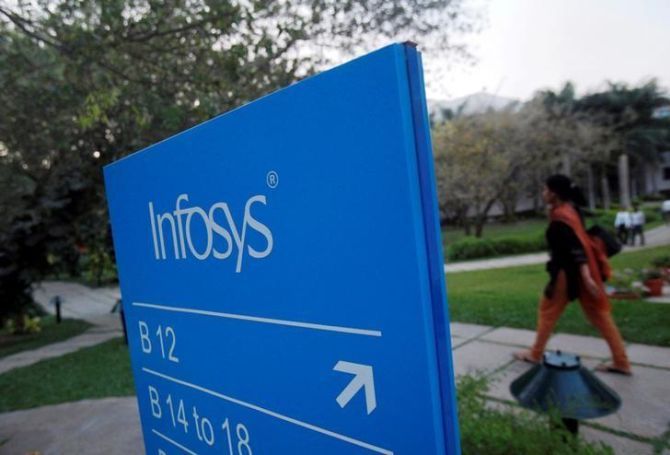 | « Back to article | Print this article |
According to PRIME Database, there are nine companies with active buyback programmes of Rs 8,605 crore. Among these, Infosys’s share repurchase programme is the biggest at Rs 8,260 crore.

Nine companies, including technology major Infosys, which have active buyback programmes, are staring at an unexpected tax burden.
The Union Budget made it mandatory for listed companies to pay additional tax at 20 per cent on share buybacks. The move, aimed at discouraging the practice of avoiding the dividend distribution tax, came into effect on July 5, 2019, according to the Finance Bill.
“The effect of this provision is that a listed company whose buyback is open now would be taxed at 20 per cent, plus the surcharge and cess on the amount of consideration paid, less the issue price of such shares,” said Ashok Shah, partner, NA Shah Associates.
According to PRIME Database, there are nine companies with active buyback programmes of Rs 8,605 crore. Among these, Infosys’s share repurchase programme is the biggest at Rs 8,260 crore.
The new tax is likely to make a huge dent in the profits of these companies because the tax outgo is an average 10 per cent of the consolidated net profits of 2018-19 (FY19).
For instance, Infosys will have to pay Rs 1,924 crore as buyback tax, which is about 12 per cent of its FY19 net profit.
“Any buyback of shares from a shareholder by a company listed on a recognised stock exchange, on or after July 5, 2019, shall also be covered by the provision of Section 115QA of the Act and have to pay tax at the rate of 23.30 per cent,” said Suresh Surana, founder of RSM Astute.
“This would be a barrier for the companies that have already made an announcement for buyback or are in the process of doing so.”
Share buybacks have become a regular feature for listed companies in the past three years, following the increase in the dividend tax and impetus from government disinvestment.
Since 2016, companies have repurchased shares worth Rs 1.35 trillion. Capital market experts have been expressing concern about the trend of buybacks offsetting new shares entering the market.
From 2016-17, the government started levying an additional 10 per cent tax on dividend income in the hands of recipients. The move saw a lot of companies rewarding their shareholders through buybacks instead of dividends.
A buyback is a process by which a company repurchases its shares from stakeholders. The shares repurchased are extinguished, resulting in a lower equity base and improved financial ratios.
Market participants said apart from the additional tax on dividend income, the use of repurchase as a disinvestment tool by the government was a reason for the sharp spurt in buybacks in the past few years.
Photograph: Vivek Prakash/Reuters.